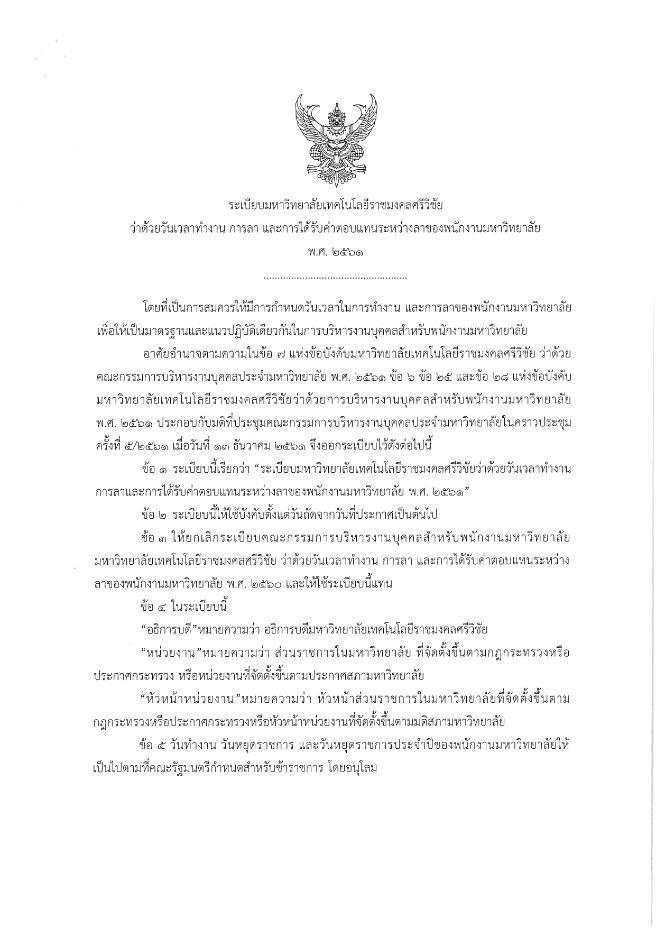Reporters: Asst.Prof. Saowanee Chaipech, Dr. kittichon Utaynapun, Asst.Prof. Sudanai Krualee, Mr. Ugrit Chammari
Evidence Date: during 2023 Jan-Dec
Related SDGs:

Related Indicators: 12.2.6
Details:
The announcement from Rajamangala University of Technology Srivijaya on sustainable consumption and production since A.D.2022.
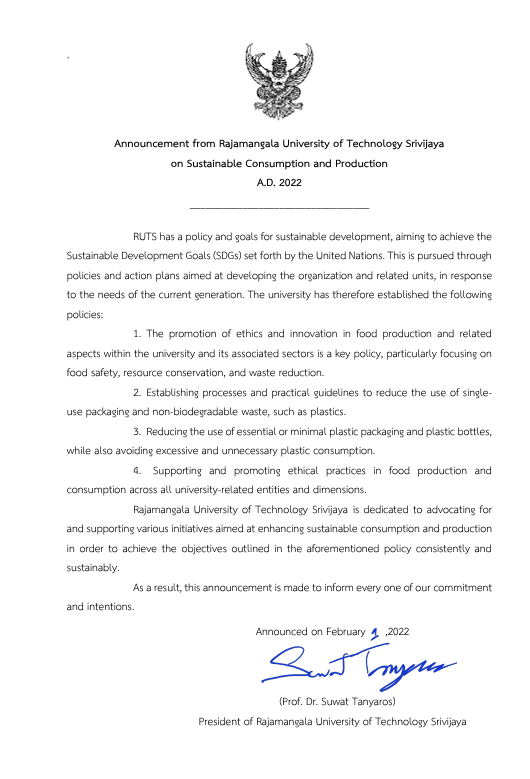 |
Evidence I : Using Disposal Materials for Aquaculture
The Faculty of Fisheries Science and Technology at Rajamangala University of Technology Srivijaya, Trang Campus, has expanded its initiative to reuse household and fisheries waste materials, such as baskets and PVC pipes, as training equipment for aquaculture students. This project has fostered innovative ideas for utilizing waste materials in aquaculture, supporting academic services for both students and the general public. The research team has extended this project to research aimed at developing technologies and innovations to help reduce aquaculture investment costs for fishers. For example, they created “basket condos” for oyster farming. Traditional oyster farming methods have typically resulted in low survival and growth rates. However, using stacked baskets in a management system developed by the research team has significantly improved oyster survival and health rates. Another example is using PVC pipes repurposed from household use to create areas for cultivating algae. This knowledge has been shared with fishers in Trang Province, and in the future, the research team aims to expand this knowledge to other regions to benefit local communities.
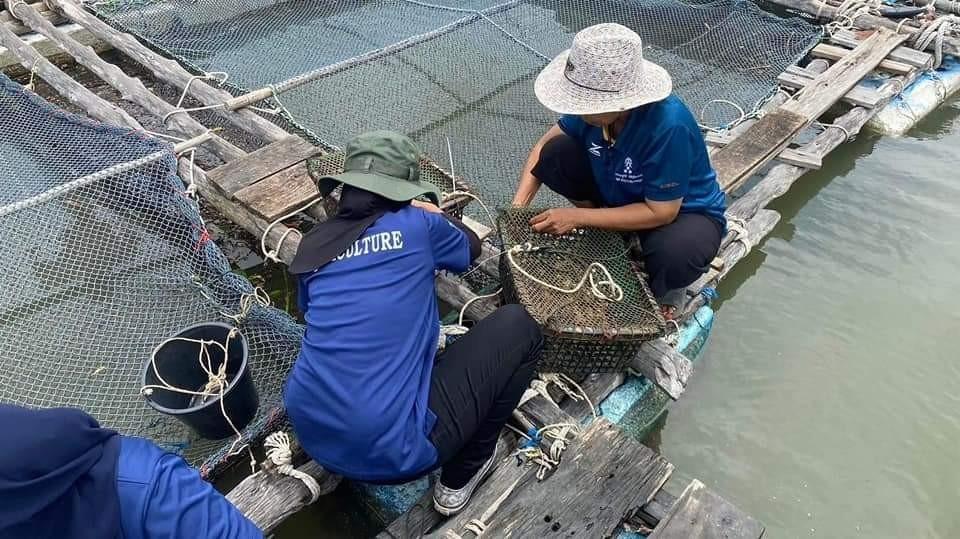 |
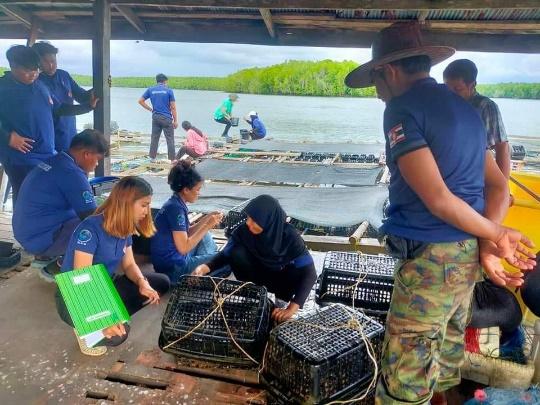 |
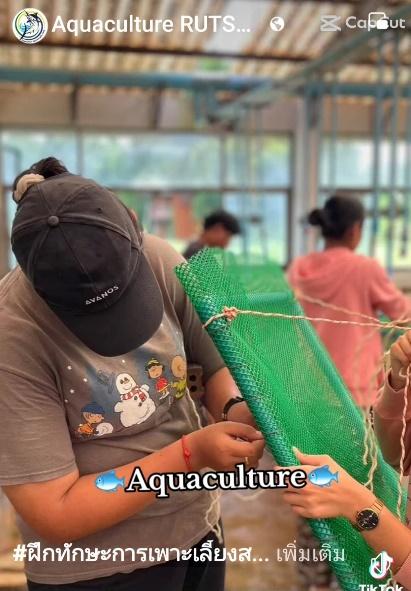 |
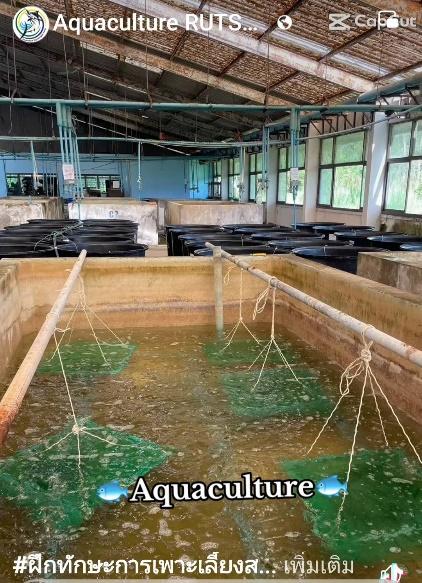 |
https://www.facebook.com/share/p/MCBbG6VeSr2zT95g
https://www.facebook.com/share/p/DnZQtyb4ghhwybkF
https://www.facebook.com/share/p/3VSQJ8zDySuBZFBT
https://www.facebook.com/share/p/6jsmxwo2QNVRt2i8
Evidence II Using Disposal Materials for Agritourism
Rajamangala University of Technology Srivijaya efforts in sustainable consumption and production prioritize both internal development and the support of entrepreneurial activities linked to the university. A key focus of these initiatives is the reduction of single-use packaging. To promote sustainable consumption, RUTS adheres to a policy designed to minimize single-use packaging and actively encourages these practices. For example, RUTS collaboration with farmers was to welcome numerous guests who visit to model farm under, where food is thoughtfully served in ceramic and glassware, promoting the use of reusable items instead of disposable products; this initiative emphasizes responsible consumption and production practices. By showcasing sustainable dining practices and encouraging visitors to adopt similar habits, the university fosters greater awareness of environmental issues, ultimately contributing to a culture of sustainability that extends beyond the campus and inspires collective action towards reducing ecological footprints in the community.
 |
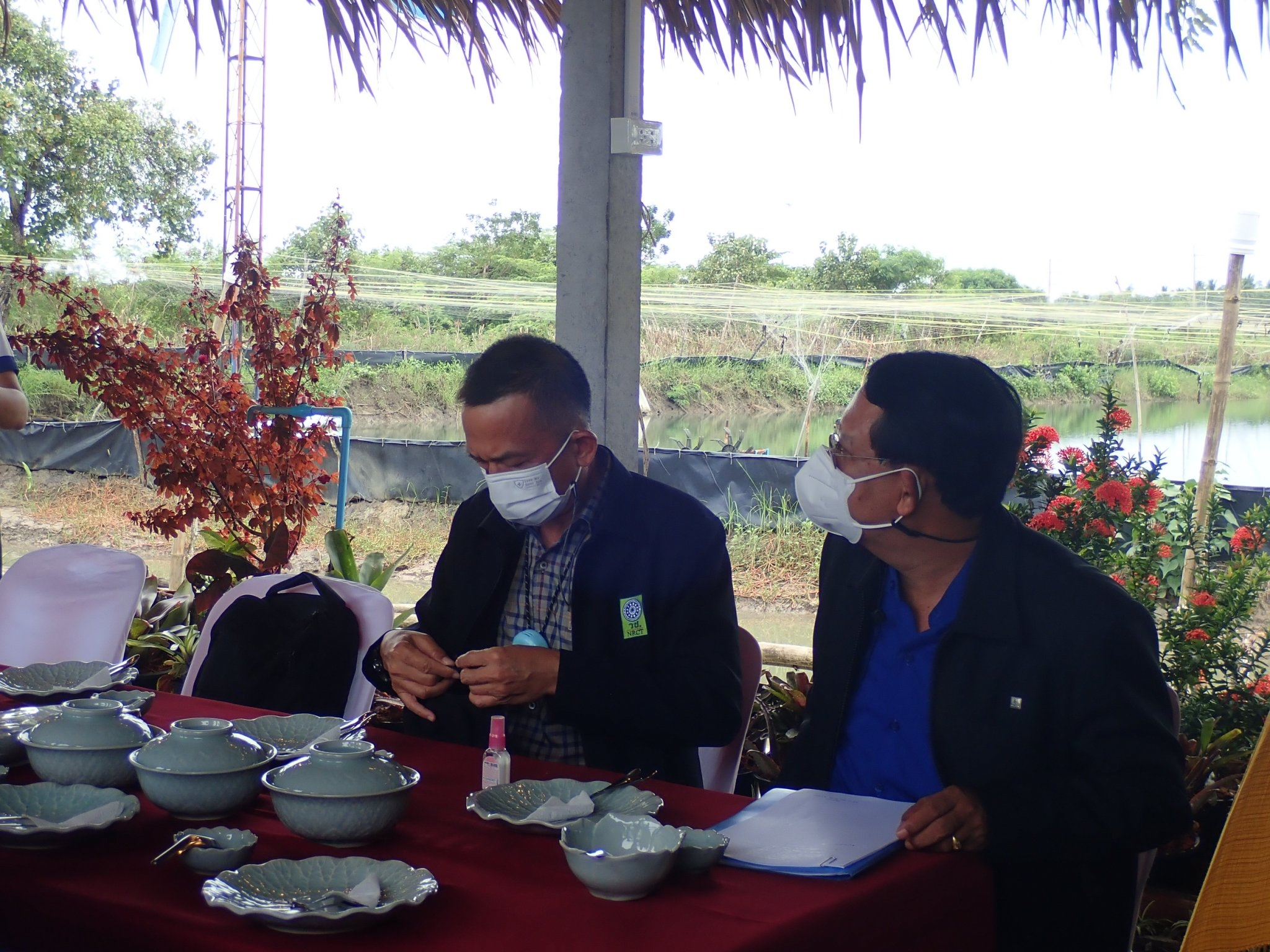 |
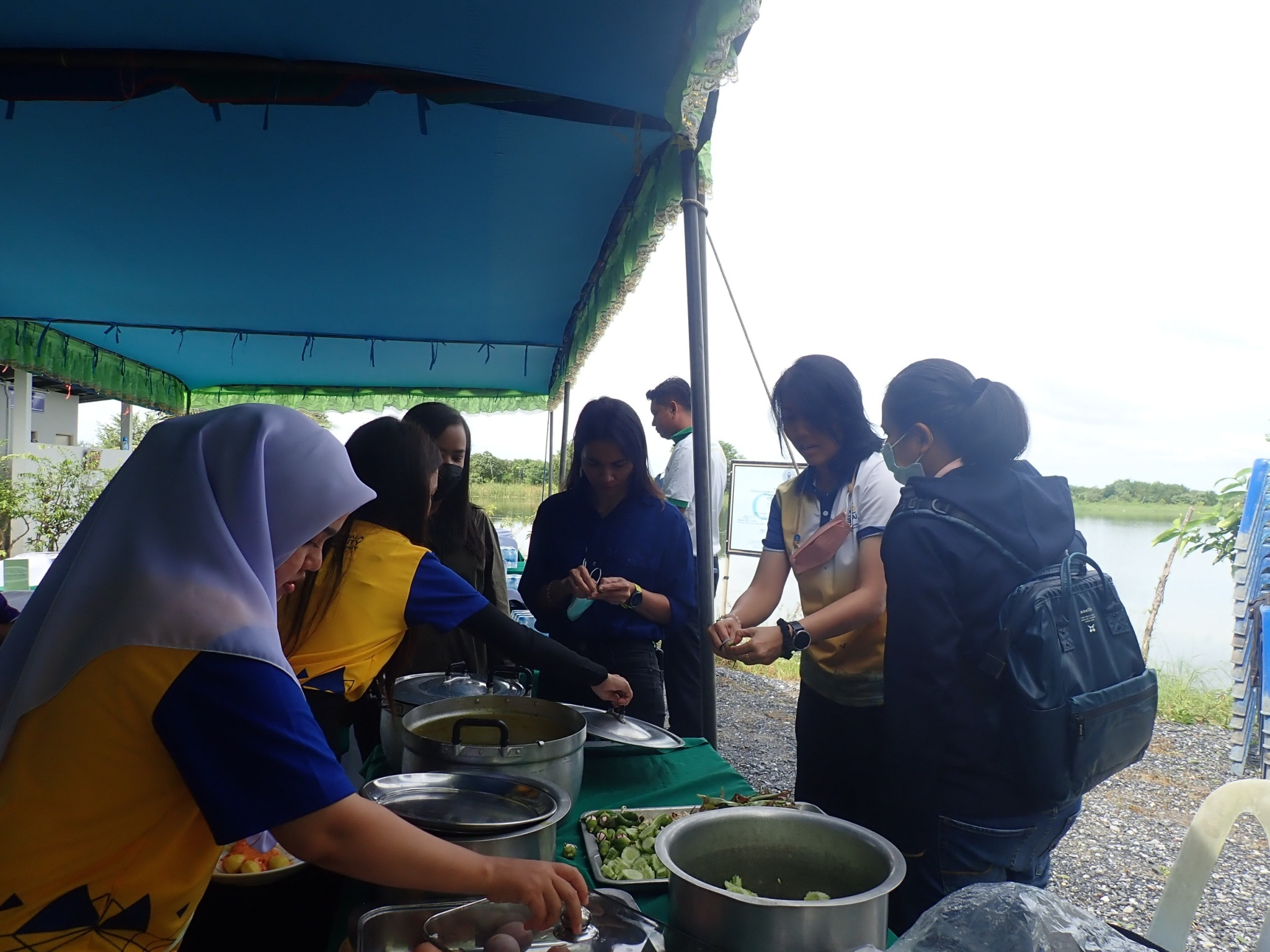 |
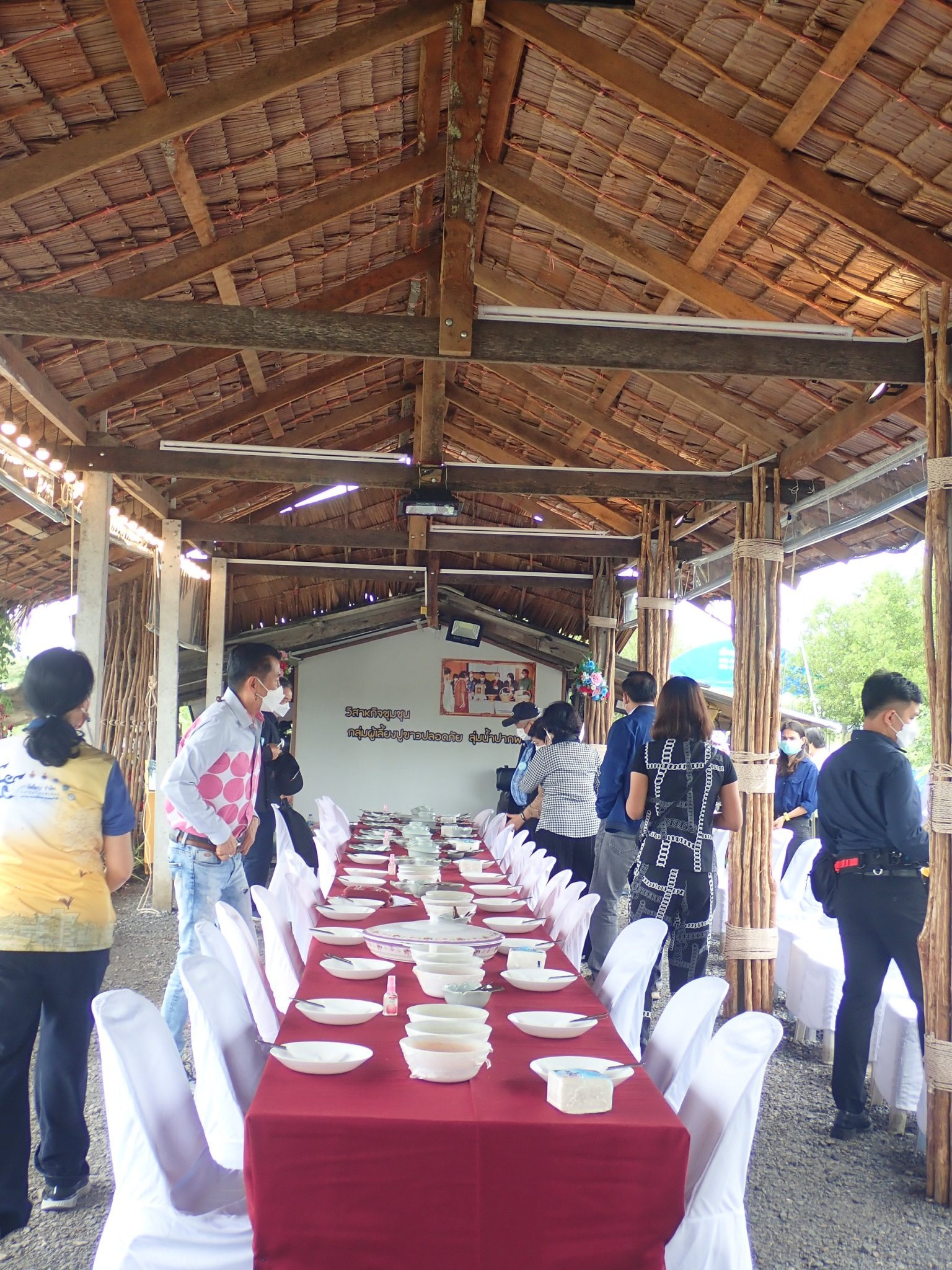 |

